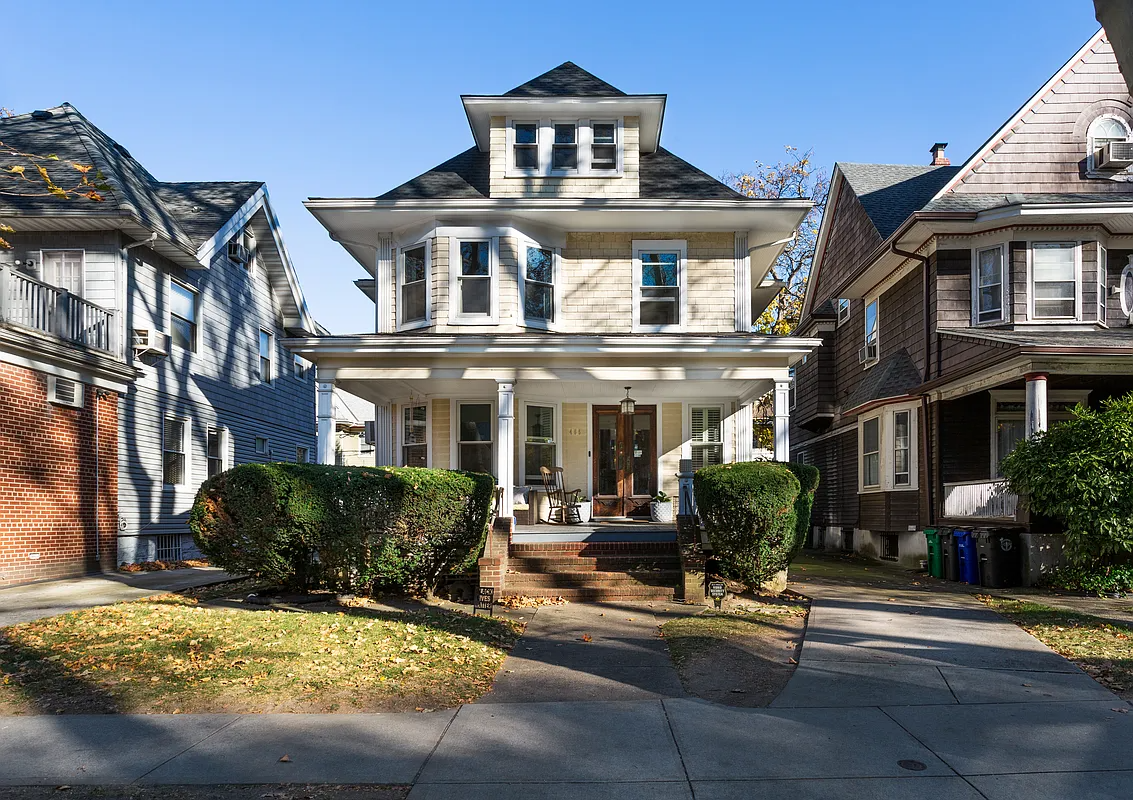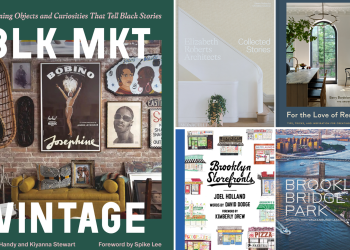Greenspan: Housing Boom Is An Imbalance
August 26, 2005, CBS Marketwatch — In his sharpest words to date about rising home prices, Fed chief Alan Greenspan described the housing boom as an economic imbalance that could end badly for the economy. In prepared remarks to the Jackson Hole Fed policy conference, Greenspan said high home prices were due in part to…
August 26, 2005, CBS Marketwatch — In his sharpest words to date about rising home prices, Fed chief Alan Greenspan described the housing boom as an economic imbalance that could end badly for the economy. In prepared remarks to the Jackson Hole Fed policy conference, Greenspan said high home prices were due in part to low risk premiums demanded by investors. Such increases in asset values “are too often viewed by market participants as structural and permanent.” “History has not dealt kindly with the aftermath of protracted periods of low risk premiums.” Read his remarks. Greenspan warned asset values could fall if investors grow cautious and demand higher interest rates. “What they perceive as newly abundant liquidity can readily disappear,” Greenspan said. “Any onset of increased investor caution elevates risk premiums and, as a consequence, lowers asset values and promotes the liquidation of the debt that supported higher prices,” Greenspan said. Greenspan said the flexibility of the economy is the most important policy asset in handling any shocks from a fall in asset values. He expressed optimism that the adjustments could be made gradually and a recession could be avoided.
Housing boom is an imbalance: Greenspan [MarketWatch]









And what about quality of life? I think I’d rather rent in a nicer(inmo) nabe then to own in some nabe I hate. I may lose money in rent but at least I am not spending it in therapy and meds.
just a few notes from an insider with a large pulse on the market:
there will be 3 trillion dollars of real estate switching over to a variable rate in 2006. in 2007 that number almost doubles….that is when we will see many, many foreclosures. the I/O were good while they lasted, hopefully things stay steady.
two: houses ARE sitting on the market longer. The first sign that people are wary. Offers are starting to come in below asking in certain areas. It definitely will hit certain neighborhoods first, where the prices were speculatroy to begin with. neighborhoods on the “fringe” may just stay that way. While hot, gentrified areas will feel the pinch less…
bankruptcy lawyers are salivating as are foreclosure companies waiting for the shoe to drop.
I will say that there is no BUBBLE. Real estate continually outperforms other investments… instead of homeowners seeing the (ridiculous) returns of up to 25% in under a year, it will go back to the normal 4%, maybe 8%… is that a bubble? No. It is as mister greenspan says, a settling… it’s like a cappuccino to all you yuppies…. the froth is just gonna settle… but you still have a yummy cappuccino… real estate is and will alwasy be a safe investment…
To Anon 2:37pm, I remember the housing bust of the 1990s, but I’m surprised to hear that your Classic Six near Central Park didn’t sell. I recall comments that the market for large, prewar apartments remained liquid, but that people couldn’t sell studio’s or 1 bedroom’s. (Parents of a friend of mine bought an UWS studio in their coop building for $25,000 in 1993. They used it for guests. Early this year, they sold it for $495,000.) Obviously, you lived through the experience firsthand, so it’s chilling to read. Yikes.
“Renting is dumb. If you’re paying $2,000 a month on rent, you’re guaranteed to lose almost $100,000 over the next four years with no chance of ever turning your losses around. That money? She’s gone…”
Not really a fair statement. In the same sense: Closing costs, interest, re taxes, maintenance. That money? She’s gone.
You might be saying, “Yeah, but I will get that money back when I sell the place, and you have no way to get that back when you rent! Ha!” Um, you need to compare apples to apples. By renting I am saving a considerable amount of money, both in upfront costs, and in monthly carrying costs. Just as you can make up your losses through appreciating real estate value, I can make up my losses by investing the money I am saving. I am pretty confident that in 5 years, my investment of money saved by renting will outperform your returns on real estate. And remember, the $ you make on real estate isn’t computed by subtracting what you get from what you paid. You also have to subtract any and all costs associated with the property (see the list above). Compare apples to apples, and renting doesn’t look so dumb, at least in the current market.
The only rational price for real estate is the present value of all future potential rental income. Right now, the numbers don’t add up. Maybe six years ago, they did, and you made the right decision, based on the numbers. I applaud you for making the rational decision, but don’t tell me I am dumb because today’s numbers don’t warrant the same course.
Bottom line, there is no such thing as a 100% sure thing investment. It doesn’t exist. Don’t trust anyone that tells you any differently.
“For example, read Krugman today. His figures are bad and his logic is demented, but he has an audience. That influences everyone, even the Fed Board of Governors.”
I nearly spit out my soda all over the monitor when I read that. Thanks for the biggest laugh I have had all day. I’m sure Krugman will be happy to hear that he is directly influencing US monetary policy.
Most of the posters here are probably far too young to remember the late ’80s and early to mid ’90s real estate market in New York City.
I bought a classic six a block from Central Park West in ’89 for the now laughable price of $380K. But I wasn’t laughing in ’95 when, after losing a job, I couldn’t find a buyer for that beautiful place at any price. No one and I mean no one was interested at the time. I ended up getting foreclosed and saw my previous impeccable credit rating shot to hell.
According to an article in a recent NY Daily News, residential RE in NYC dropped by like 45% from the peak in ’89 to the bottom in ’95. Great timing on my part–and I had 30% down payment/nonexistent equity.
A old real estate pro told me, “In real estate, you don’t make money when you sell, you make it when you buy.” Which I guess means you may not do so well if you buy after five years of ever increasing prices.
“Finally, I just want to point out that acting like you’re so special because you bought years ago doesn’t mean you’re great…just older”
100% agreed! So many people seem to think they’re geniuses because they bought a home 5/10/15/etc years ago. I would’ve bought then, too… but I was in high school, undergrad or grad school. It’s a bit difficult for folks like us to have bought homes when we couldn’t afford ramen.
Hey Synonymous, I’m also a renter and can very much AFFORD to buy. That’s not the issue for some people. But apartments are no longer 200Gs (if they were, I’d buy one and be rich – a 200G mortgage is a pittance and well below my rent – you’re not some financial genius for buying at that price). To get something at all what I want, I’d be spending about 800Gs or more. While I can afford that, why should I? Like someone else said, owning doesn’t always make more sense. My rent is a bit over 2Gs now. Even with a sizable downpayment and the “tax breaks” I still come out in the hole if I own. Owning a 2 bedroom condo or co-op is stupid for me, considering I would like some kids eventually and they need a place to sleep. Plus, my savings account just grows and grows. My net worth is well above what it would be if I owned a home right now.
Moreover, my rental is beautiful, huge and well maintained…it’s a lot nicer than what’s available to buy for the same amount. I think a lot of the landlords on this site would disagree that their brownstone rentals are dirty and gross. You can’t make a blanket statement like that, especially in such a diverse market at NYC.
PS, where did you get that headline that homesales jumped? It may be, but it seems pretty contrary to all that I’ve been reading.
Finally, I just want to point out that acting like you’re so special because you bought years ago doesn’t mean you’re great…just older.
With all due respect, when home prices have “become” so out of line with rents and incomes, it is because they are more expensive and income and rent have not caught up.